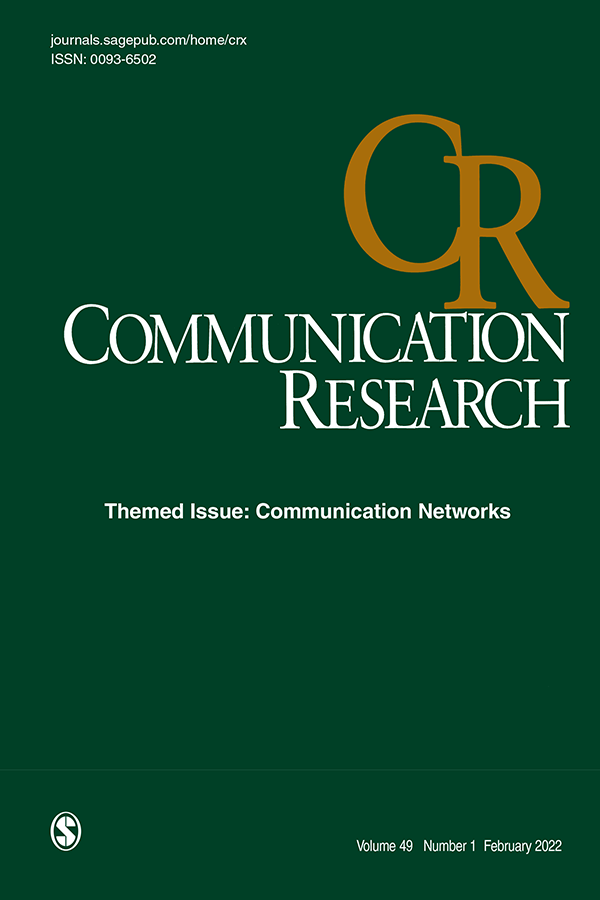How Political Overconfidence Fuels Affective Polarization in Cross-cutting Discussions
IF 3.2
1区 文学
Q1 COMMUNICATION
引用次数: 0
Abstract
The Dunning-Kruger effect describes how poor performers overestimate their abilities while top performers underestimate their abilities. This study explores whether this effect explains the ineffectiveness of cross-cutting discussions in reducing affective polarization. We propose a moderated mediation model in which the relationship between cross-cutting discussion (wave 1) and affective polarization (wave 2) is mediated by oppositional responses to disagreements, and this indirect relationship, specifically between cross-cutting discussion and opposition responses, is moderated by political overconfidence. Analyzing panel data from a two-wave online survey, the results suggest that the Dunning-Kruger effect is widespread in political knowledge and influences social media users’ behaviors and attitudes. Specifically, for example, those who are more overconfident engage in cross-cutting discussions, have more oppositional responses (e.g., posting criticisms or clicking “dislike”), and thus become more affectively polarized. This suggests that correcting the public’s perceived bias about their level of political knowledge may help reduce affective polarization.政治过度自信如何引发跨领域讨论中的情感两极分化
邓宁-克鲁格效应描述了表现差的人高估自己的能力,而表现好的人低估自己的能力。本研究探讨这种效应是否解释了跨领域讨论在减少情感两极分化方面的无效。我们提出了一个有调节的中介模型,其中跨领域讨论(第一波)和情感极化(第二波)之间的关系是由对分歧的对立反应介导的,而这种间接关系,特别是跨领域讨论和对立反应之间的关系,是由政治过度自信调节的。分析两波在线调查的面板数据,结果表明邓宁-克鲁格效应在政治知识中广泛存在,并影响社交媒体用户的行为和态度。具体来说,例如,那些过于自信的人参与跨领域讨论,有更多反对的回应(例如,发表批评或点击“不喜欢”),从而变得更加情感两极分化。这表明,纠正公众对其政治知识水平的偏见可能有助于减少情感两极分化。
本文章由计算机程序翻译,如有差异,请以英文原文为准。
求助全文
约1分钟内获得全文
求助全文
来源期刊

Communication Research
COMMUNICATION-
CiteScore
17.10
自引率
0.00%
发文量
20
期刊介绍:
Empirical research in communication began in the 20th century, and there are more researchers pursuing answers to communication questions today than at any other time. The editorial goal of Communication Research is to offer a special opportunity for reflection and change in the new millennium. To qualify for publication, research should, first, be explicitly tied to some form of communication; second, be theoretically driven with results that inform theory; third, use the most rigorous empirical methods; and fourth, be directly linked to the most important problems and issues facing humankind. Critieria do not privilege any particular context; indeed, we believe that the key problems facing humankind occur in close relationships, groups, organiations, and cultures.
 求助内容:
求助内容: 应助结果提醒方式:
应助结果提醒方式:


